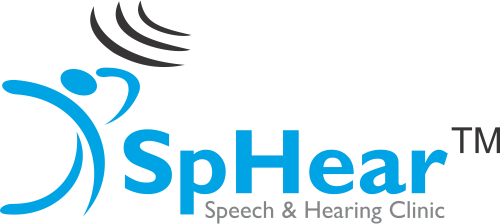- +91-11-4608 5246
- [email protected]
- Mon - Sat : 10:00 AM - 06:00 PM
Faq’s
Frequently Asked Questions
At SpHear Clinic, we understand that each case of hearing impairment is unique. This is why we have a wide range of solutions to cater to your specific needs. From cochlear implantation for those suffering from severe to profound bilateral hearing loss, to speech therapy for children post cochlear implantation or hearing aid fitting, we are committed to helping you regain your hearing ability and improve your quality of life.
Our dedicated team of specialists is on hand to guide you through the process and provide the necessary support. Whether you need information on our various services, products, or you simply have questions about hearing loss, our FAQ page provides essential information to guide you.
We are available Monday through Saturday from 10:00 AM to 6:00 PM. Contact us via email at [email protected] or call us at +91-98715 31222, +91-98718 00222 or +91-11-4608 5245/5246. Hear better, live better with SpHear Clinic.
What is hearing loss?
Hearing loss, or hearing impairment (say: im-pare-ment), happens when there is a problem with one or more parts of the ear or ears. Someone who has hearing loss or impairment may be able to hear some sounds or nothing at all. Degree of hearing loss refers to the severity of the loss which can vary from Mild, Moderate, Severe to Profound based on hearing loss range in decibels (dB HL). People also may use the words deaf, deafness, or hard of hearing when they’re talking about hearing loss.
What are the causes of hearing loss?
Hearing impairment may be caused genetically, or by problems during pregnancy and childbirth.
These include:
- Premature birth
- Conditions during birth in which a baby lacks enough oxygen to breathe
- Rubella, Syphilis or certain other infections in a woman during pregnancy
- Use of ototoxic drugs (a group of more than 130 drugs, such as the antibiotic gentamicin) during pregnancy
- Jaundice or Meningitis can damage the auditory nerve in a newborn baby
- Infectious diseases such as Meningitis, Measles, Mumps and Chronic ear infections can lead to hearing impairment, mostly in childhood, but also later in life
- Head injury or injury to the ear
- Wax or foreign bodies blocking the ear canal can cause hearing loss at any age
- Excessive noise, including working with noisy machinery, exposure to loud music or other loud noises, such as gunfire or explosions, can damage the inner ear and weaken hearing ability.
- Ageing
What are the impacts of hearing loss?
Hearing impairment can impose a heavy social and economic burden on individuals and their families. Hearing impairment in children may delay development of language and cognitive skills, which may hinder progress in school. In adults, hearing impairment often makes it difficult to obtain, perform, and keep employment. Hearing impaired children and adults are often stigmatized and socially isolated.
What are the different types of hearing losses?
Hearing loss can be categorized by which part of the auditory system is damaged. The three basic types of hearing loss are:
- Conductive hearing loss occurs when sound is not conducted efficiently through the outer ear canal to the eardrum and the tiny bones (ossicles) of the middle ear. Conductive hearing loss usually involves a reduction in sound level or the ability to hear faint sounds. This type of hearing loss can often be corrected medically or surgically.
- Sensorineural hearing loss (SNHL) occurs when there is damage to the inner ear (cochlea), or to the nerve pathways from the inner ear to the brain. This is the most common type of permanent hearing loss can mostly be treated through a hearing device (Hearing Aids or Cochlear Implant)
- Mixed hearing loss. Sometimes a conductive hearing loss occurs in combination with a sensorineural hearing loss (SNHL). In other words, there may be damage in the outer or middle ear and in the inner ear (cochlea) or auditory nerve. When this occurs, the hearing loss is referred to as a mixed hearing loss.
When does one need Hearing Aids?
Hearing aids are small electronic devices fitted into the ear canals that amplify sound and can help to restore many of the sounds that hearing-impaired people are missing.
Is it better to go for one hearing aid or for two?
Two ears are always better than one. Wearing two hearing aids provide:
- Helps in localizing the sound source
- Improves listening in noisy situations
- Provides better overall hearing
What is a cochlear implant system?
A cochlear implant (CI) system is a surgically implanted electronic device that provides a sense of sound to a person who is suffering with profound or severe to profound degree of hearing loss and derives little or no benefit from hearing aids. The cochlear implant system is often referred to as a bionic ear as well. It consists of 2 parts – surgically implantable Cochlear Implant and external Sound Processor fitted after 3 weeks of surgery.
What is the difference between a hearing aid and a cochlear implant?
Hearing aids are fitted into ear canal, amplifies the sound to compensate hearing loss. It makes use of natural damaged hearing pathway by transmitting a louder sound into the ears. Whereas a Cochlear Implant is a hearing prosthesis which by-passes the natural hearing pathway and directly stimulates the nerves ending into the inner ear (cochlea).
Who can be a candidate for cochlear implant?
Candidacy for cochlear implantation is mainly determined by a team of specialists which includes an otologist (ear doctor), an audiologist and a speech therapist. At times, for paediatric cases, psychologist and paediatrician are also involved.
- Suffering with Severe to Profound degree of bilateral hearing loss
- Getting little or no benefit from hearing aids
- Paediatric Candidacy: For the best hearing outcome a congenital hearing impaired child should be implanted as soon as possible after the birth. US-FDA guidelines recommend that the minimum age of implant is 12months.
- Adult Candidacy: An adult post-lingual hearing impaired candidate is recommended to get their implant soon after she/he has acquired hearing loss.
What is the role of Speech Therapy? Why is it important for a child fitted with hearing aids or cochlear implant to undergo therapy?
Speech Therapy for children post hearing aids/ cochlear implantation fitting is an accepted part of the hearing process. Indeed, many clinics feel it is so important that they require parents of young children to sign an agreement laying out family responsibilities for speech therapy after hearing aids/ cochlear implant fitting. A young child with a hearing aids/ cochlear implant and her family require a comprehensive speech therapy program to help her utilize the auditory signal and to naturally integrate the various components of communication including listening, speech, language, reading and thinking.
Our Team

Ms. Neevita Narayan
Director & Audiological Consultant
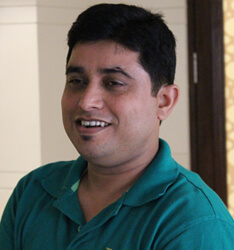
Prabhash Kumar
Sr. Audiologist

Kamlesh
Sr. Speech & Language Therapist
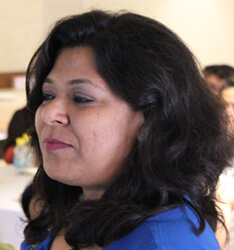
Anushree
Sr. Speech & Language Therapist

Radhika Mishra
Audiologist and Speech therapist

Priyanka Sinha
Audiologist and Speech Therapist

Richa Pandey
Speech Therapist

Manju Khanna
Receptionist
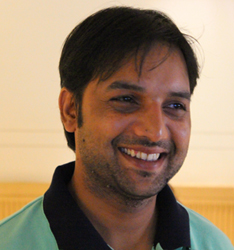
Manoj Parihar
Accountant/Accounts

Sachin Giri
Technical Support

Pintu Kumar
Clinic Coordinator
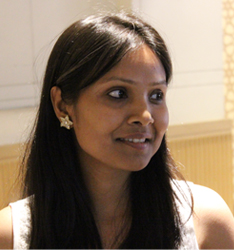
Priyanka Sharma
Sr. Speech & Language Therapist
